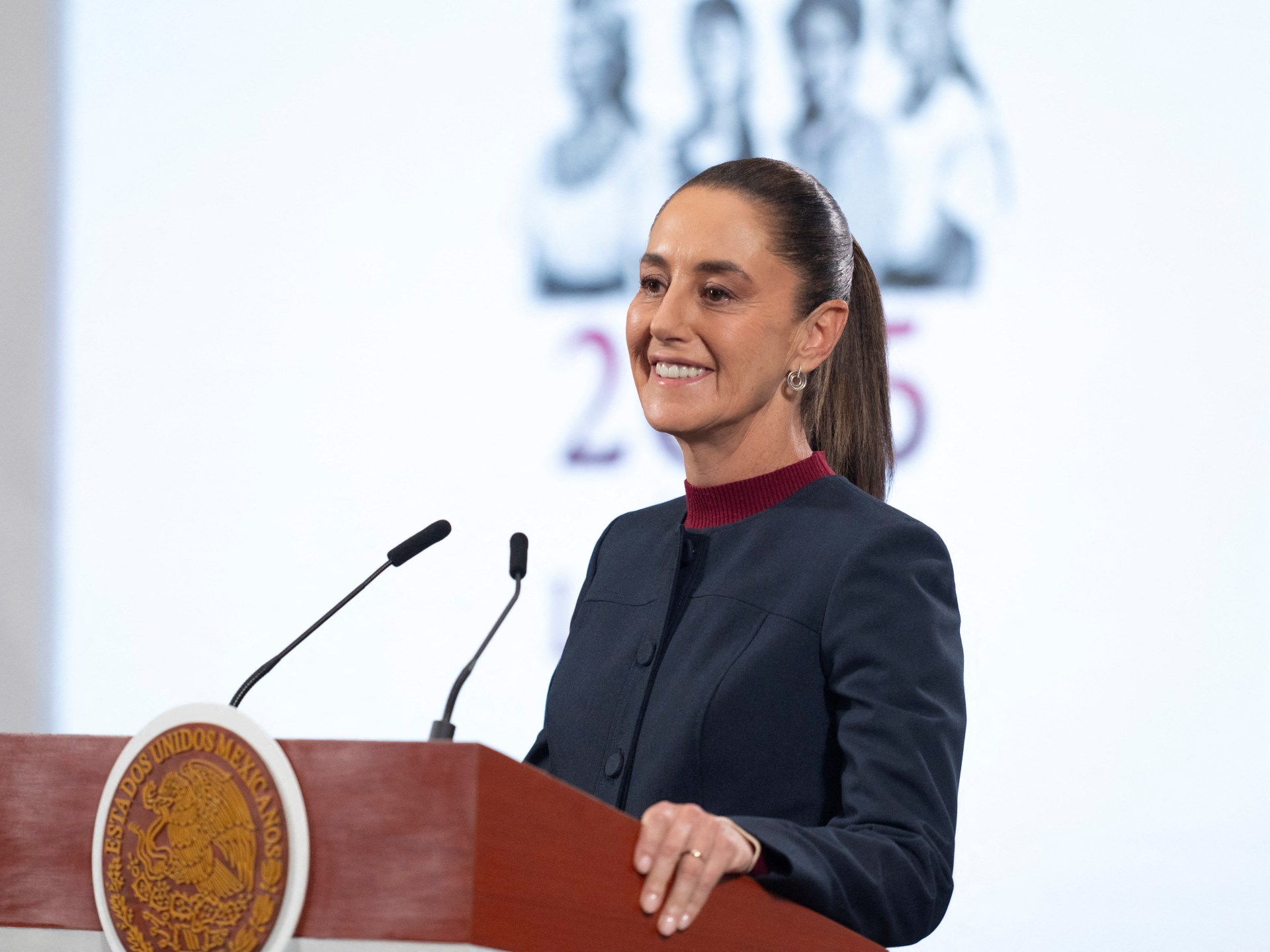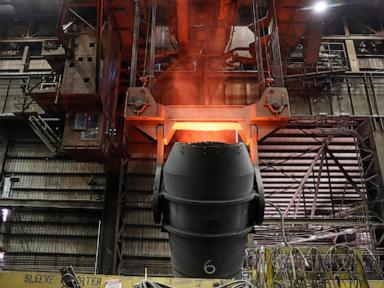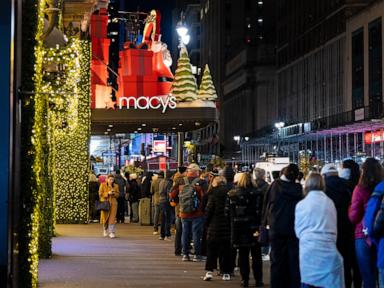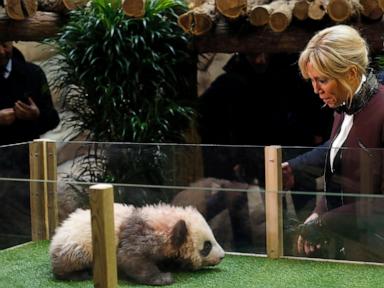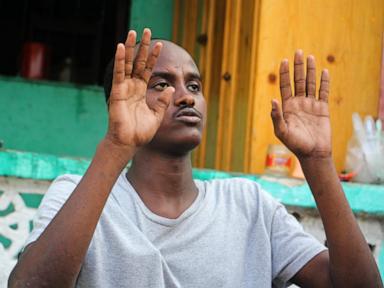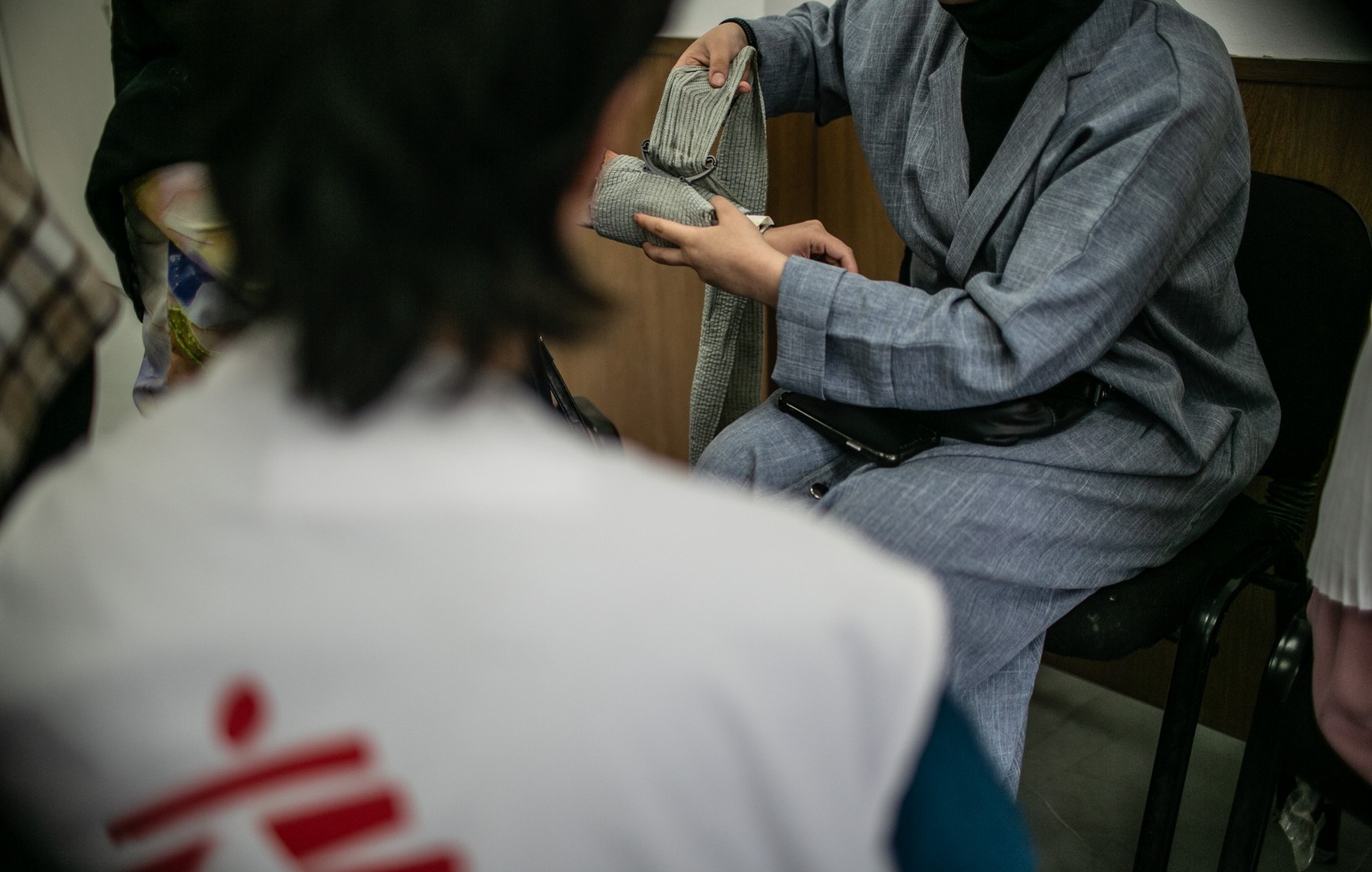
Jenin, occupied West Bank, Palestine – On April 4 last year, Ahmad Nobane was trying to reach an injured person in the Jenin refugee camp to administer first aid.
He had received messages on his mobile phone giving him the location of the victim and driven as far as he possibly could along the city’s narrow, destroyed streets. He had to get out and walk the final 300 metres (1,000ft) to reach the man lying on the ground.
Then he felt the shot.
Nobane, 22, had been hit by an Israeli sniper in the right side of his chest.
Taking cover, he put pressure on the wound to stop the bleeding – as he had been trained to do for others.
His colleagues were able to reach him and help him into an ambulance. But the vehicle was stopped by the Israeli military, and soldiers fired warning shots at the ambulance.
When the ambulance was finally allowed to move, Nobane was taken to the Ibn Sina Specialized Hospital, the facility raided by undercover Israeli operatives who targeted and killed three Palestinians inside it in January. He stayed for two days. It took six months of follow-up treatment to recover.
Nobane is one of 23 young men and women who have trained as voluntary first responders in Jenin, and that incident was a year and a half ago, before the war on Gaza began and Israeli forces stepped up violent raids on towns and cities in the occupied West Bank.
These days, the experience of coming under fire is all in a night’s work.

Using tuk-tuks as makeshift ambulances
Nobane was just a newborn when his father was killed during the second Intifada in 2002, fighting the Israeli forces who were attacking their refugee camp in Jenin. Two years ago, he decided to join the volunteers in the camp who are dedicated to trying to save lives by training as first responders.
After he recovered from the gunshot wound, he resumed his work as a volunteer as best as he could.
“We try to find life from death,” Nobani tells Al Jazeera.

These days in Jenin, it’s hard to know exactly how many people may need their assistance on any given night. About 24,000 people are registered as living in this camp. But the frequent raids by Israeli forces have stepped up since the war in Gaza began in October, destroying homes and forcing many to flee.
Since then, Israeli soldiers and settlers have killed 536 Palestinians, including 131 children, in the West Bank and injured more than 5,500, including 800 children – more than one-third of them by live ammunition – according to the United Nations Office for the Coordination of Humanitarian Affairs (OCHA).
In Jenin alone, at least 148 Palestinians have been killed, 320 wounded and 540 detained by Israeli forces since October 7, according to local journalist Ali Samoudi, one of those trying to keep count amid the chaos.

Our Palestine is making a desperate bid to keep those numbers down. The grassroots organisation was born inside the camp and is led by Nidal Naghnaghiye, 52, a community leader who has spent 17 years in Israeli prisons. It is the group responsible for organising the first aid volunteers.
Working closely with the international organisation Doctors Without Borders, known by its French acronym MSF, the first responder volunteer team is headed up by Salah Mansour, 29, a lawyer. He is one of the 15 men and eight women who make up the group – all drawn from different professions and backgrounds and all now trained in first aid and ready to try to reach injured people wherever they might be.
It’s important to keep the volunteers equipped and trained, Mansour says, because “we do not limit ourselves to working in the field. We also reach patients’ houses if needed.”
“Many times, we have had to stay with a patient for more than two hours until security conditions improve to transport the patient.”

Volunteers use MSF-supplied tuk-tuks as makeshift ambulances to transport the wounded, patients and first responders.
They have one primary goal: Keep the patients alive for as long as it takes to reach a hospital, such as the Jenin Government Hospital, which is just metres from the Jenin camp but might as well be many kilometres away because of the time it takes to get through Israeli military roadblocks. In December, MSF reported that Israeli forces had shot dead an unarmed 17-year-old inside the hospital compound and were preventing ambulances from leaving it. Paramedics and ambulance drivers were stripped and forced to kneel on the ground, MSF said in a post on X.

With these sorts of obstacles, it’s all a case of making do inside the Jenin camp. The first aid volunteers work from a large hall that was once used by a civil society organisation but now serves as a training centre where the volunteers receive instruction from MSF on how to stem bleeding, safely move and lift victims and a host of other life-saving techniques. At the moment, all the training centre contains are a few bandages and some other medical supplies while volunteer tradesmen work in the corners carrying out routine repairs.

‘You are saving your brothers’
Inside the training centre, Nobani, who studies speech and language therapy at the Arab American State University of Jenin, has a welcoming smile and calm voice.
Several scars mark his body. They are visible on his back, legs and arms. Behind the first aid vest, there is a bullet embedded in his chest. That was from his first injury as a volunteer paramedic in April last year.

Just three months after that, another Israeli incursion took place in Jenin – one of the deadliest since the end of the second Intifada, the Palestinian uprising during the first half of the 2000s. The attack was launched with armoured vehicles, ground forces and air strikes on residential areas. Many houses in the camp were destroyed as well as a health facility run by the UN Relief and Works Agency for Palestine Refugees (UNRWA).
The assault lasted two days. At least 12 Palestinians were killed, including four children, and 100 were injured, 20 critically. An estimated 4,000 people fled their homes.
During that raid, Nobani was injured for the second time. Shrapnel from a nearby air strike ripped through the left side of his body while he and a colleague were trying to reach a mother and daughter injured by a drone strike.
The impact of the deafening air strike knocked them to the ground. He still has difficulty hearing.
Why does he keep putting himself through this? Nobani answers without hesitation and with conviction: “You are saving your sister, your brother, your family, your friends, your people.”

‘If not us, who is going to do this work?’
With a lack of medical personnel on the ground, this group of volunteer first responders has become critical in the Jenin refugee camp.
“If not us, who is going to do this work?” Nobani asks.
Since before the war on Gaza began – but even more so since – the raids and incursions in Jenin have targeted health workers, medical facilities and ambulances, Nobani explains.
According to the World Health Organization (WHO), there have been 480 attacks against Palestinian health workers and facilities in the West Bank from October 7 to the end of May, leaving 16 people dead and 95 injured. About 95 percent of these attacks were focused on Jenin, Nablus and Tulkarem.
During an Israeli raid in May this year, for example, Dr Aseed Jabareen, 50, was killed near the Jenin Government Hospital on his way to work.
In July last year, there was an air strike on a medical stabilisation room, a makeshift emergency room used to stabilise injured people with a few beds and medical equipment, that had been set up in the camp earlier in the year by the volunteers with support from MSF.
Since that raid, volunteer responders carry their first aid kits with them so they can treat victims on the spot rather than try to bring them to the stabilisation room.

The killing of medical staff and destruction of facilities is not the only reason residents of Jenin are finding it increasingly difficult to access medical treatment. The raids often destroy the area’s infrastructure. Devastated streets make it difficult – sometimes impossible – for ambulances to reach locations inside the camp.
Patients themselves are also often unable to reach ambulances during the raids, even if they are available.
Therefore, a primary aim of Our Palestine besides training volunteer paramedics is to ensure that at least one person per family in the camp has training in first aid.
With help from MSF, the volunteers teach residents ways to stop bleeding and other primary trauma care, including a mental health component. This helps bring more capacity to the team.

‘You stop when the bleeding stops’
Nour*, 27, a mother of two children, is one of 11 women trainees attending a “stop the bleeding” workshop in the camp. She wants to learn the skills required to attend to injured patients. Like others around her, she fears a family member or neighbour being injured in an Israeli raid and not knowing what to do.
The women are meeting at midday in the blazing heat in the makeshift training centre, equipped with only a large, loud fan to cool the room down. They are here to learn first aid from an MSF trainer who is communicating with them via a translator.

The trainer, Joshua Sim Ka Seng, stresses the importance of stopping bleeding as soon as an injury occurs and teaches techniques including how to apply tourniquets.
Having had many experiences seeing injured people, the women have many questions. One woman asks how long it is necessary to apply pressure to a bleeding wound.
“You stop when the bleeding stops,” Sim replies.
After the three-hour session, Nour reflects on the importance of this training. “Israeli soldiers don’t target just the resistance fighters. They target civilians.
“I imagine that one day, one of my family or neighbours will be injured or beaten up by Israeli soldiers. Is important to know what to do – at least the minimum.”
*Some names have been changed to protect anonymity.
